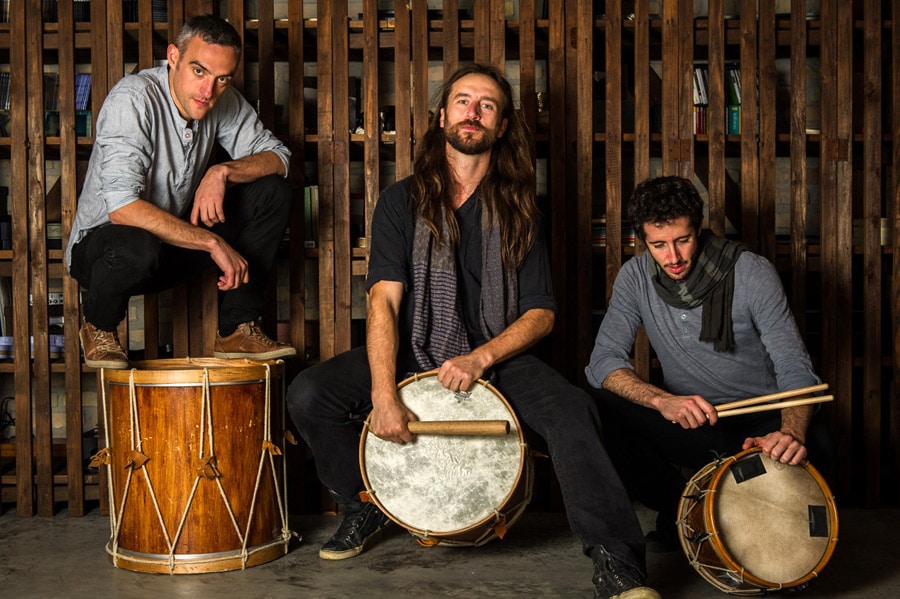This article was translated by John R. Bopp
Basque group Kalakan is starting a tour on November 7th that will take them to a part of South America where Basques have a notable presence: Argentina and Uruguay.
Tonight, they’re starting their tour with a free concert in the Usina del Arte in Buenos Aires, and they’ll continue through Buenos Aires, Montevideo, Necochea, and Mendoza, to finally cross the Atlantic on their way to a concert in Pamplona.
By the way, in Necochea, they’ll play at the Argentine National Basque Week which is being organized by the Euxkaletxea in that touristic coastal town in Buenos Aires province.
It’s interesting to see how the media are treating their visit, their decision to sing in Basque, or their geographic origin. It never ceases to surprise us that they’re constantly being asked if they sing in Basque for political reasons, or if Madonna chose them to join her on her world tour because they sang in that language, or to claim that they sing “Franco-Basque” songs.
They sing in Basque because that’s their language. Madonna chose them because they’re incredible musicians who have a drawing power that’s hard to resist. And, they’re Basque. It’s true that they live under French administration, but that doesn’t change the fact that they’re Basque in the slightest. They’re many other things too, but they’re Basque, period.
On the other hand, it seems that the idea of “Basque music” is for some, for many, an idea of a fossilized culture, preserved in formaldehyde, or in glass cases in museums, a “dead” part of a “dead” culture, that was born into a people that has disappeared, “dissolved” in modernity. Some even dream of that.
But nothing could be further from the truth. Basque culture is alive and well. It influences the world and the world influences it. It changes, it adapts, it’s molded, but it never loses its soul, nor does it ever disconnect from its roots.
These days, Argentines and Uruguayans, Basque-Argentines and Basque-Uruguayans can enjoy a group that proves all this: the strength, vitality, modernity, and tradition that are concentrated in Basque culture.
We’ll leave you with the two articles published about this tour in Argentina and a pair of videos in which the group co-stars. Basque music and culture are very alive and very open to the world.
El Día – 5/11/2016 – Argentina
Tras girar con Madonna, el trío vasco Kalakan llega a La Plata
En el marco de una gira por Argentina, Kalakan, terceto vasco de percusión y canto que durante siete meses de 2012 participó del tour mundial de Madonna, se presentará por primera vez en nuestra ciudad, con un función especial que se concretará mañana, a las 21, en La Salamanca, 10 esquina 60.
(Sigue) (Traducción automática)
La Nación – 5/11/2016 – Argentina
Canciones del País Vasco Francés y un proyecto israelí para el mundo
Kalakan es un trío vocal y percusivo que interpreta temas tradicionales de hace varios siglos, con arreglos a tres voces en euskera.
(Sigue) (Traducción automática)
Last Updated on Dec 20, 2020 by About Basque Country





